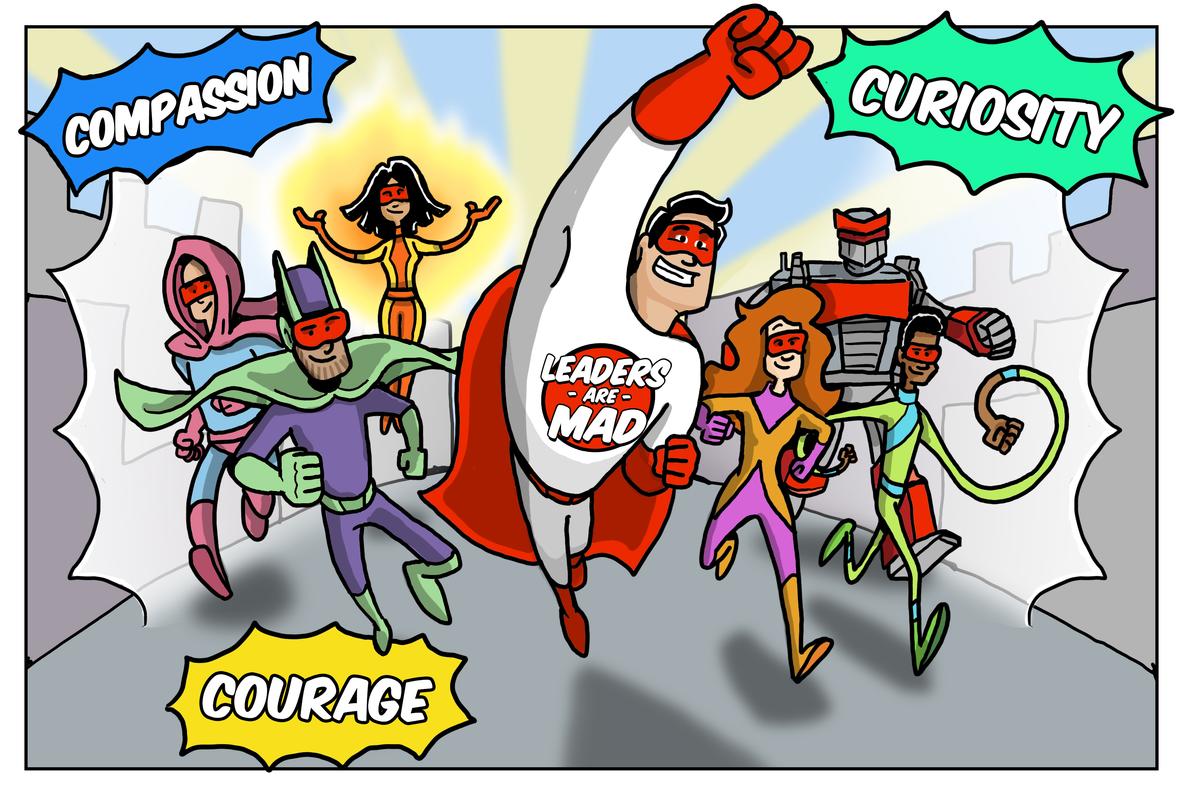High trust relationships are good for your health!
Now if that’s not got you interested, I don’t know what will!
Several studies have found that people’s level of satisfaction with their relationships at age 50 is a better predictor of physical health than their cholesterol levels and people who were the most satisfied in their relationships at age 50 were the healthiest at age 80. This is according to“What Makes a Good Life? Lessons from the Longest Study on Happiness,” in 2015, Robert Waldinger
Audit your relationships

I love what Brene Brown, American research professor, lecturer, author, and podcast host has to say about...
“The anatomy of trust”
“Trust is like a jar of marbles, it is built on small moments and situations. Each small action of a person adds a marble or takes one away”
Brene uses the acronym BRAVING to help us remember the elements of trust?
Read the definitions for BRAVING and consider each of your key relationships against these definitions.
Where do you have work to do to build a high trust relationship?
B -Boundaries
We are clear about our own boundaries and we hold them. We are clear about the other person’s boundaries and we respect them.
My clients often need help defining their boundaries and working within them. When boundaries are not clear there is tension in the relationship as inevitable there are behaviours and actions at some point which one or all parties find unacceptable without even understanding what is going on. One of the most helpful conversations we can have with a colleague or within a team is that of boundaries, what we find acceptable and what we don’t. This can be about anything, for example: appropriate language, working hours, personal space and personal disclosure.
R - Reliability
We do what we say we’re going to do. Every time, over and over again. It also means being aware of our limitations and not committing to more than we can deliver.
The latter is what usually catches people out. My clients often come to me overwhelmed and worried about not performing because they cannot achieve everything they have on their plate. One of the issues they facing is not being prepared to say no. They say yes and then fail to deliver effectively and to time on what they said yes to and other tasks because they said yes again. This is not because they are unreliable as a person but more because they are taking too much on for fear of being seen to be weak.
Leaders need to have the courage to say NO, to be able to be reliable.
A- Accountability
When we make a mistake, we are willing to own it, apologise for it, and make amends. When the other person makes a mistake, we allow them to own it, apologise for it, and make amends.
Almost all my client organisations have ‘Accountability’ as a value. One aspect of this is reliability. Another element is how people deal with mistakes. Mistakes happen, failure is a reality. We cannot expect to work at the speed we do these days, whilst innovating and navigating the complexities of the 21st century. What we can do however is save time and energy and the cost of mistrust and conflict by admitting to our mistakes and failures and moving on quickly to fix things. This takes effort from all parties to allow for mistakes and allow for amends and stop attributing blame and shame.
V - Vault
What I share with you, you will hold in confidence. What you share with me, I will hold in confidence. In our relationship, we both show that we acknowledge confidentiality by also not sharing secrets third parties have shared with us.
In my work confidentiality is critical. having said this it is not always easy because it is not always straight forward and this is the same for leaders. There will often be situations where we might want to share something with another person because we think we are being helpful. We MUST stop ourselves and think is what we are about to share acceptable or was there implicit or explicit agreement that this information was to remain confidential.
I - Integrity
Choosing courage over comfort. Choosing what’s right over what’s fun, fast and easy. Practising your values, not just professing them.
Integrity is another favourite when it comes to organisational and personal values. Integrity means so many different things to different people. When working with clients on formulating values we often agree that Integrity is not a value in itself but more about practicing all of your values and therefore having integrity. Looking at Brene’s description Integrity is just this, it is having the courage to align your behaviours and actions with your espoused values, which isn’t always fun, fast or easy.
N - Non-Judgement
I can fall apart, ask for help and be in struggle - without being judged by you. You can fall apart, ask for help and be in struggle - without being judged by me.
Leaders are often better at helping than at asking for help. If you judge needing help as negative, you can also think less of the person who is asking for your help. Leaders are always role modelling even if this is not intentional. They are role modelling both positive’s and negatives.
Dare to ask for help and think of this as brave. In this way you are role modelling this to others. In this way you will receive help and others are more likely to ask for help. This is at the heart of trust and collaboration. This supports achieves more accountability and Reliability.
G - Generosity
You make the most generous assumption about my words, intentions, and behaviour, and then talk to me about it. If I screw up, say something bad or forget something, you will make a generous assumption.
None of us is perfect so let’s accept this and assume positive intent. If someone screws up let’s see what we can do to help them. I often work with clients on this. Clients frequently come to me frustrated with their boss or team members and critical of their behaviour. Assuming positive intent enables a much more positive response and supports the relationship to allow the opportunity to resolve things.
For more from Brene Brown i can highly recommend her books try this one, where she talks about Leading bravely
If you don’t trust yourself, you cannot ask others to trust you.
If you find yourself struggling with trust, the thing to examine first is your own marble jar - how you treat yourself. We can’t ask people to give us something that we don’t believe we deserve to receive. You will know you’re worthy of receiving trust, when you trust yourself above everyone else.
When relationships breakdown, Instead of claiming you were stupid or naïve, ask yourself...
- Did I honour my own boundaries?
- Was I reliable?
- Did I hold myself accountable?
- Was I protective of my stories (vault)?
- Did I stay in my integrity?
- Was I judgemental towards myself?
- Did I give myself the benefit of the doubt, was I generous towards myself?
If you would like to reflect further on your relationships beyond trust you can try this exercise
If you would like some help to improve your relationships
